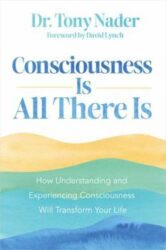Healing Your Two Hearts

Women are known to have a higher emotional intelligence (EI) than men, and that’s a good thing. In fact, for many of us, empathy, intuition, compassion and sensitivity to other people’s feelings are the beacon lights that guide us through each day.
Yet this emotional sensitivity and openness can backfire when we’re under stress. Researchers tell us that a woman’s brain is wired differently than a man’s, making women more susceptible to stress than men even when exposed to the identical triggers. As just one example, women in the military are twice as likely to develop PTSD than men.
Negative emotions are not just feelings—they are chemicals released by our bodies and brains that cause a chain reaction throughout the body. In fact, research shows that prolonged, intense emotional stress can be a risk factor for heart disease. Anger, hostility, anxiety, and depression increase the risk of heart disease in women and men by as much as 200 to 300 percent. Researchers found that people who reported high levels of psychosocial distress had almost as much risk as those who smoked.
And even though many people think of heart disease as a man’s disease, that turns out to be a modern-day myth. According to the American Heart Association, more women than men die of heart disease every year, and heart disease is the number one cause of death for women in America, above cancer. One in three women in the U.S. will die of a heart attack—that’s about one death per minute!
Thus taking care of your emotional heart is important to your heart health and longevity. And of course, it works the other way around too. If you have a heart attack, it’s going to cause increased emotional stress as you make enormous adjustments to your life. At least half of people with heart attacks will experience depression in the weeks following, and many more women will experience depression than men.
Clearly, our emotions affect our physical heart, and the state of our physical heart affects our emotions. Knowing this, it makes sense that we need to take steps to support our two hearts—the emotional and the physical. But how?
In recent years, the benefits of Transcendental Meditation for healing the heart has caught the attention of the NIH, which has funded over $26 million in research on the Transcendental Meditation technique for prevention of heart disease. One recent study published in Stroke showed that deaths, heart attacks, and strokes were cut by nearly half for at-risk patients who practiced the TM technique, compared to controls.
How does TM work? When you meditate, your mind and body settle into a state of deep rest and relaxation, which allows the body to release stress and strain and the mind and emotions to become calm and peaceful.
“The Transcendental Meditation technique helps promote mental and emotional well-being. It has especially helped my patients with depression, anxiety, and insomnia,” says Veronica Butler, M.D., co-author of A Woman’s Best Medicine.
These subjective experiences are backed up by research, which shows that corresponding effects are taking place in the body. For instance, studies show that the stress hormone cortisol drops, as well as blood pressure and other signs of stress in the body. In fact, an April 2013 report by the American Heart Association concluded that the Transcendental Meditation (TM) technique is so effective in lowering blood pressure that it may be used by doctors for the prevention and treatment of hypertension.
“A common request from patients is, ‘I don’t like to take medications, what can I do to lower my blood pressure?’ said Robert Brook, M.D., chair of the expert panel that authored the report. “We wanted to provide some direction.”
And the benefits don’t stop there. In other peer-reviewed studies, the Transcendental Meditation technique has been found to reduce additional risk factors for heart disease, including high cholesterol, diabetes, cigarette smoking and alcohol abuse.
When you shed the stress and start to experience inner peace on a daily basis, all sorts of wonderful changes can come into your life.
As Dr. Nancy Lonsdorf, author of The Ageless Woman says, “We all have a potential for bliss, for our body and mind to heal themselves, and to sustain a life that is whole and healthy and positive. The latest research is showing that through the Transcendental Meditation technique, we can culture more positive emotional states to create ideal health in mind and body.”
In other words, support your two hearts and live a life of health, wholeness and happiness.
About the Author
Linda Egenes writes about green and healthy living and is the author of six books, including The Ramayana: A New Retelling of Valmiki’s Ancient Epic—Complete and Comprehensive, co-authored with Kumuda Reddy, M.D.
More Posts by Linda
- Tired and Burned Out? Transcendental Meditation Can Help: An Interview with Dr. Nancy Lonsdorf, MD
- Worried About the Future? Six Ways to Calm Your Anxiety
- What Do You Carry in Your Self-Care Tool Kit?
- Five Strategies for Family Caregivers
- From the Streets to College in Four Months: The Communiversity of South Africa Empowers Underserved Youth in Cape Town





